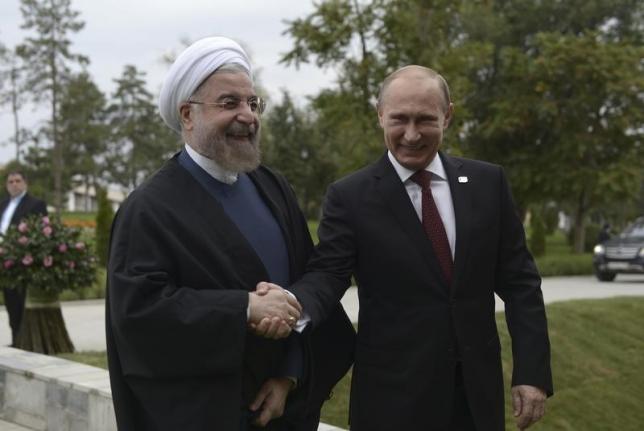Russian President Vladimir Putin signed a decree that would put an end to a self-imposed ban on supplying S-300 anti-missile rocket system to Iran on Monday (April 13). This decision is paving a way for an oil-for-goods swap between Russia and Iran. Analysts see this move as a signal that Moscow wants to be the first to benefit from the eventual lifting of sanctions on Teheran. The decree is thus removing the major obstacle in Russia-Iran relations after the Kremlin cancelled a contract on missile system deliveries in 2010 under pressure from the West. It has been reported that Russia has already begun to supply equipment, construction materials, and grain to Iran in exchange for its oil.
Last year, both countries were negotiating a deal under which Russia would buy up to 500,000 barrels of Iran’s crude daily. However, both sides have since been releasing contradictory information concerning whether the deal was finally struck or not. Yet, Russian Deputy Foreign Minister, Sergei Ryabkov, said on Monday that the deal was already being introduced. “I wanted to draw your attention to the rolling out of the oil-for-goods deal, which is on a very significant scale,” Mr Ryabkov said and added that “in exchange for Iranian crude oil supplies”, Russia is “delivering certain products, which are not banned or limited under the current sanctions regime.” He did not provide any further details and Iran has not commented yet.
Russia and Iran have been discussing the barter “oil for goods” for more than a year. Moscow is hoping to have a head-start in the race for economic and trade benefits once the deal on Iran’s nuclear program is concluded. Iran and the world powers are expected to finalize details and technicalities by 30 June that would curb Iran’s uranium enrichment program in exchange for a relaxation of international sanctions.




